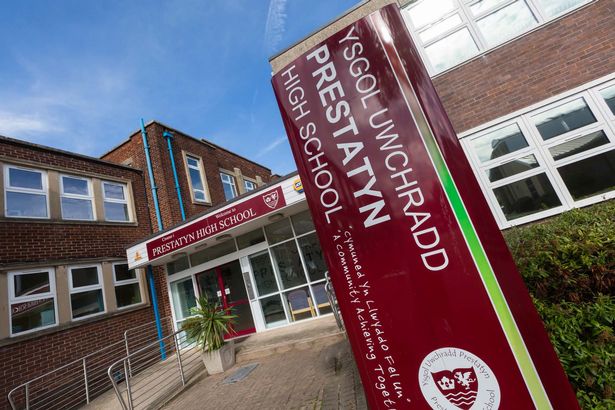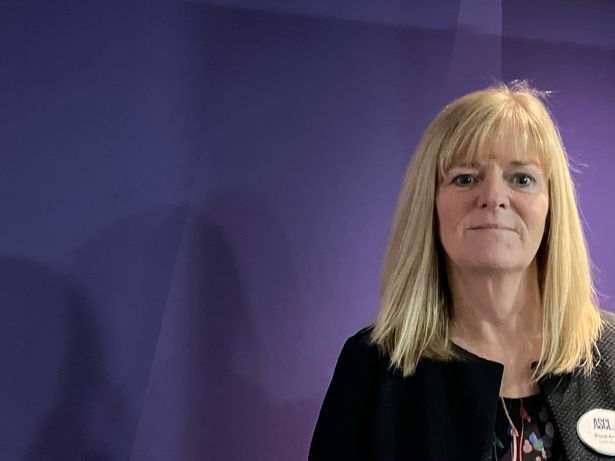

Larger class sizes, fewer subject choices and fewer support staff to address the mounting mental health, absence and behaviour problems in schools - these are just some of the dire problems outlined by headteachers as they grapple with years of budget cuts. In the week when the Welsh Government announced more cash for education, heads said this was welcome but not a guarantee the money would reach schools directly.
Education will receive £83.6m and £28m more in capital funding in the budget announced by the Welsh Goovernment this week. But heads don't yet know how much of that councils will pass on directly to schools after years of budget cuts and rising costs.
And they had a stark warning for the governments in Cardiff Bay and Westminster - continue to fail to fund education adequately now and the Wales of the future will be blighted by continued poverty and lack of productivity. As one head puts it “we have cut to the bone and now we are cutting into the bone and it’s pretty thin.” You can get more story updates straight to your inbox by subscribing to our newsletters here.


Hywel Parry, head of Ysgol John Bright in Llandudno, is not exaggerating when he says even the bone is now thin - he has had to make 21% cuts in the last eight years. In two rounds of savings in 2021 and 2023 Mr Parry made 14 redundancies, most of them teachers.
Mr Parry says he can't calculate the “silent statistic” of staff lost through non-replacement at his and other schools across Wales. Every decision is now made "through a lens of we can afford nothing”.
Mr Parry is not alone. School leaders across Wales have been warning for the last few years and pre-Covid about the dire effects of budget cuts and rising prices with growing numbers now in, or prejected to go into deficit.
Neil Foley, head of Prestatyn High, is one of these. He is looking at a £200,000 projected deficit on his £9m budget after a 3% budget cut.
Mr Foley has made seven redundancies in the last seven years on top of not replacing staff, including teachers: “The funding squeeze has been going on for the last nine years - the effect is larger class sizes, not replacing staff who leave and making redundancies,” he says.
The headteachers say schools are cutting subjects including arts and modern foreign languages because they cannot afford to run them at GCSE and A level. Some schools have even cut additional maths and you can read more about that here.

Tackling school absence and behaviour are two priorities, according to Education Minister Lynne Neagle. These issues cannot be addressed if schools lose the support staff so vitally needed, they warn.
At Prestatyn High one in four of the 1,600 pupils are eligible for free school meals and Mr Foley has also this term become executive head of Christ The Word, an all-through school, which was in special measures and deficit when he took over. These issues require the help of support staff to tackle - yet he is now looking at cutting support staff to balance the books.
“Money is a constant pressure and every time someone leaves my first thought is “can I make a saving?”, not how I can improve the school,” Mr Foley says.
“We are still in a post pandemic world in terms of attendance and literacy and this should be a time when we invest in the young.”

Rona Archer is head of Ysgol Emmanuel Primary in Rhyl whose catchment she describes as one of “deep rooted and long term deprivation”. More than six in 10 of her pupils are eligible for free school meals and she says support staff are key to addressing issues such as children arriving with low levels of literacy and with increasingly complex needs.
Relations with families are key, but she had to let go her family engagement officer to save cash recently.
“Pastoral care, and low levels of literacy on entry are some of the things we rely on teaching assistants for. I have ended fixed term contracts and cut back on professional learning as we can’t afford supply cover.
“We are getting into the bones now. The teacher pay rise has not been fully funded, so we must cover that and sometimes the money going to local education authorities from Welsh Government does not go to schools.”
All three heads warned of huge problems coming down the tracks if the Welsh and Westminster governments don't fund schools adequately. They stressed that teachers now have to tackle not just education but also the rising tide of mental health, social and financial problems of pupils.
They point out that education should and could be key to the Welsh Government’s anti-poverty strategy. All three are members of the Association of School and College Leaders Cymru which this week warned schools are "catastrophically" short of money.
“The Wales of the future can’t afford to spend less. No one is sounding the alarm about what Wales will be like in 20 years time without investing in the future,” warns Mr Parry.
Neil Foley has a simple message for those in charge of purse strings: “The future of Wales is its young people - it is very short term not to fund their education.
“We welcome the additional funding announced this week but need to know what’s coming to schools and we need to know it is carrying in so that we can forward plan.”
What is happening where you live? Find out by adding your postcode or visit InYourArea
